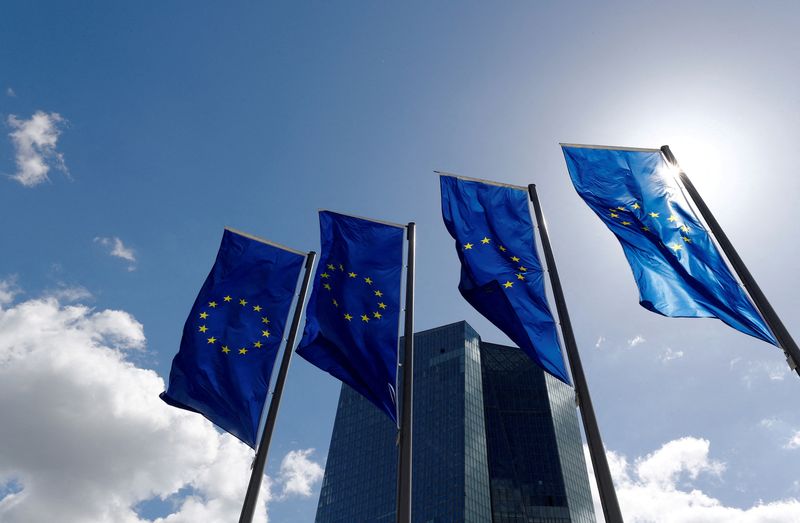By David Lawder
WASHINGTON (Reuters) -The European Union is prepared to react to any renewed trade tensions with the United States that may emerge under President-elect Donald Trump's second administration, the EU's ambassador to the U.S., Jovita Neliupšienė, said on Friday.
Neliupšienė, speaking to reporters during a press briefing, declined to discuss possible retaliatory measures that Brussels could impose to respond to Trump's vow to impose tariffs of 10%-20% on all U.S. imports.
She said the U.S. is the most important trade partner for the EU, with $1.7 trillion in two-way goods and services trade, and $5 trillion in two-way investment. She added that there are opportunities for the two sides to cooperate in more areas, including energy and other sectors.
"But of course, you know, as in every family, there are sometimes tensions," she said. "If there are some new frictions for the trade, the European Union will be ready, actually, to react to that."
Europe has a lot to lose if Trump imposes global tariffs. The 27-country EU exported $576.3 billion worth of goods, nearly 20% of its total exports, to the U.S. in 2023, for a goods trade surplus of $208.6 billion, according to U.S. Census Bureau data.
Trump warned during his election campaign that Europe will "pay a big price" for not buying enough U.S. exports, including American cars and farm products, while Americans buy "millions and millions" of European made vehicles.
Mindful of the threats to struggling EU economies including auto producers Germany and Italy, the European Commission is looking to find ways to do business with Trump such as importing more U.S. liquefied natural gas.
Neliupšienė said the EU has assembled data on its deep trade links to U.S. states and that she has been making regional trips to promote trade ties during her first year as the EU's ambassador in Washington, which started Jan. 1.
Asked whether renewed trade tensions in the U.S. might threaten a 2021 U.S.-EU truce in their 17-year trade conflict over aircraft subsidies to Airbus and Boeing (NYSE:BA), Neliupšienė said she did not see any interest on the EU side for letting that happen.

The two sides agreed in June 2021 to suspend punitive duties against each other in parallel World Trade Organization dispute cases for five years, until June 2026, while they work on an agreement on aircraft subsidies aimed at limiting China's state support of its commercial aircraft industry.
The future of the Boeing-Airbus truce is "very much so in the hands of the U.S.," Neliupšienė said.